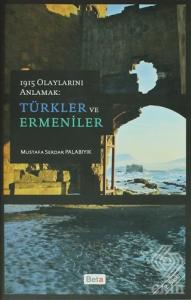
This study tries to answer the question whether the 1915 relocation fits into the genocide definition of the Genocide Convention. In doing that, it intends to remain within the confines of the Convention, while it compares Turkish and Armenian narratives on this legal basis. It argues that while the Armenian relocation had unintended tragic consequences for the Ottoman Armenians, legally, the genocidal intent argument is subject to legitimate debate. Questioning the validity of the Armanian genocide allegations never means the denial of the suffering of the Armenians durng the relocation. Such a quesrioning is only done to criticize the presentation of "Armanian genocide" as a sole and undisputable truth an to facilitate academic, not political, debate in a way to allow alternative readings of the 1915 relocation.
This study tries to answer the question whether the 1915 relocation fits into the genocide definition of the Genocide Convention. In doing that, it intends to remain within the confines of the Convention, while it compares Turkish and Armenian narratives on this legal basis. It argues that while the Armenian relocation had unintended tragic consequences for the Ottoman Armenians, legally, the genocidal intent argument is subject to legitimate debate. Questioning the validity of the Armanian genocide allegations never means the denial of the suffering of the Armenians durng the relocation. Such a quesrioning is only done to criticize the presentation of "Armanian genocide" as a sole and undisputable truth an to facilitate academic, not political, debate in a way to allow alternative readings of the 1915 relocation.












